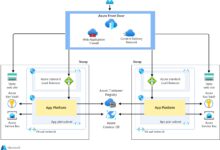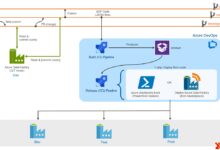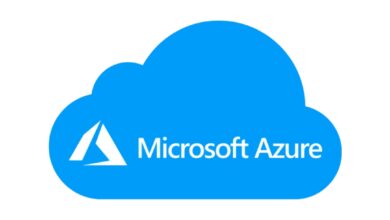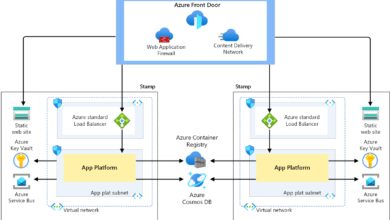MS Azure: 7 Powerful Reasons to Choose Microsoft’s Cloud
Cloud computing has transformed how businesses operate, and MS Azure stands at the forefront of this revolution. With unmatched scalability, global reach, and enterprise-grade security, MS Azure empowers organizations to innovate faster and smarter.
What Is MS Azure and Why It Matters

Microsoft Azure, commonly referred to as MS Azure, is a comprehensive cloud computing platform developed by Microsoft. Launched in 2010, it has rapidly evolved into one of the top three cloud service providers globally, alongside Amazon Web Services (AWS) and Google Cloud Platform (GCP). MS Azure offers over 200 services, including computing, analytics, storage, networking, and machine learning, all accessible via a pay-as-you-go model.
Origins and Evolution of MS Azure
MS Azure began as Windows Azure in 2008, primarily focused on application hosting. By 2010, it launched publicly with a broader vision: to provide a unified platform for cloud-based services. Over the years, Microsoft rebranded it to Microsoft Azure in 2014 and expanded its capabilities beyond just Windows-based applications to support Linux, open-source technologies, and hybrid environments.
- 2008: Announced as Windows Azure
- 2010: Public launch with PaaS (Platform as a Service) offerings
- 2014: Rebranded to Microsoft Azure, added IaaS (Infrastructure as a Service)
- 2020s: Expanded AI, IoT, and edge computing capabilities
This evolution reflects Microsoft’s strategic shift from a software-centric company to a cloud-first, mobile-first enterprise.
Key Components of MS Azure Architecture
MS Azure is built on a globally distributed network of data centers. These components form the backbone of its architecture:
Compute: Virtual machines, containers, serverless functions (Azure Functions), and batch processing.Storage: Blob storage for unstructured data, Disk Storage for VMs, and Data Lake for big data analytics.Networking: Virtual networks, load balancers, Azure DNS, and Content Delivery Network (CDN).Security & Identity: Azure Active Directory (Azure AD), Key Vault, and Security Center.AI & Machine Learning: Cognitive Services, Azure Machine Learning, and Bot Framework.”Azure is not just a cloud platform; it’s a bridge between on-premises infrastructure and the future of digital transformation.” — Satya Nadella, CEO of MicrosoftCore Services Offered by MS AzureMS Azure provides a vast array of services designed to meet diverse business needs..
From infrastructure to intelligent applications, these services enable organizations to build, deploy, and manage applications efficiently..
Compute Services: Powering Applications in the Cloud
MS Azure’s compute services are central to its offering. They allow businesses to run applications without managing physical servers.
- Azure Virtual Machines (VMs): Offers resizable compute capacity in the cloud. Supports both Windows and Linux environments. Ideal for legacy applications or workloads requiring full control over the OS.
- Azure App Service: A fully managed platform for building web and mobile apps. Supports .NET, Java, Node.js, Python, and PHP. Enables CI/CD integration with GitHub and Azure DevOps.
- Azure Kubernetes Service (AKS): Simplifies container orchestration using Kubernetes. Automates deployment, scaling, and management of containerized apps.
- Azure Functions: A serverless compute service that runs code in response to events. Perfect for microservices and event-driven architectures.
These services reduce operational overhead and accelerate time-to-market for new applications.
Storage and Data Management Solutions
Data is the lifeblood of modern enterprises, and MS Azure offers robust, scalable, and secure storage options.
- Azure Blob Storage: Designed for storing massive amounts of unstructured data like images, videos, and logs. Offers hot, cool, and archive tiers based on access frequency.
- Azure Files: Provides fully managed file shares in the cloud accessible via SMB or NFS protocols. Useful for lift-and-shift scenarios.
- Azure SQL Database: A fully managed relational database service based on SQL Server. Offers built-in high availability, automatic backups, and AI-powered performance tuning.
- Azure Cosmos DB: A globally distributed, multi-model database service. Supports document, key-value, graph, and column-family data models with single-digit millisecond latency.
With geo-redundant storage options, MS Azure ensures data durability and availability even during regional outages.
MS Azure vs. Competitors: A Strategic Comparison
While AWS and Google Cloud dominate headlines, MS Azure holds a unique position in the market. Understanding how MS Azure compares helps organizations make informed decisions.
Market Position and Global Reach
According to Synergy Research Group, as of Q1 2024, AWS leads with 32% market share, followed by Microsoft Azure at 23%, and Google Cloud at 11%. However, Azure’s growth rate has consistently outpaced the industry average due to its strong enterprise relationships and hybrid cloud strategy.
Azure operates in 60+ regions worldwide, more than any other cloud provider. This extensive footprint enables low-latency access and compliance with local data sovereignty laws.
- Regions in Africa, Asia, Europe, North America, South America, and Oceania
- Specialized regions for government (Azure Government) and national security (Azure Government Secret)
- Edge zones for 5G and IoT integration
For multinational corporations, this global presence is a decisive advantage.
Differentiators: Hybrid Cloud and Enterprise Integration
One of MS Azure’s most powerful differentiators is its hybrid cloud capability. Unlike AWS, which focuses primarily on public cloud, Azure seamlessly integrates on-premises infrastructure with the cloud through services like:
- Azure Arc: Extends Azure management to servers anywhere—on-premises, in multi-cloud, or at the edge.
- Azure Stack: Brings Azure services into on-premises data centers, enabling consistent development and operations.
- Hybrid Benefit: Allows customers to use existing Windows Server and SQL Server licenses with Azure VMs, reducing costs by up to 80%.
This makes MS Azure the preferred choice for enterprises with legacy systems or regulatory requirements that demand on-premises data storage.
Learn more about Azure’s hybrid capabilities at Azure Arc Official Page.
Security and Compliance in MS Azure
In an era of rising cyber threats, security is non-negotiable. MS Azure invests over $1 billion annually in cybersecurity and employs more than 3,500 security experts.
Built-In Security Features
MS Azure provides a multi-layered security model that protects data, applications, and infrastructure.
- Azure Security Center: Offers unified security management and advanced threat protection across hybrid cloud workloads.
- Azure Defender: An extended detection and response (XDR) solution that uses AI to detect threats in real time.
- Network Security Groups (NSGs): Act as virtual firewalls to control inbound and outbound traffic to Azure resources.
- DDoS Protection: Shields applications from distributed denial-of-service attacks with automatic mitigation.
These tools provide continuous monitoring, vulnerability assessment, and automated remediation.
Compliance and Certifications
MS Azure complies with more regulatory standards than any other cloud provider, making it ideal for regulated industries like finance, healthcare, and government.
- ISO/IEC 27001, 27017, 27018
- GDPR (General Data Protection Regulation)
- HIPAA (Health Insurance Portability and Accountability Act)
- SOC 1, SOC 2, SOC 3
- PCI DSS (Payment Card Industry Data Security Standard)
- FedRAMP (U.S. Federal Risk and Authorization Management Program)
Azure’s Trust Center provides transparency into its compliance posture and publishes regular audit reports. Visit Microsoft Compliance Documentation for detailed information.
“Security is everyone’s responsibility, but Azure gives you the tools to make it manageable.” — Microsoft Azure Security Team
Innovation and AI Capabilities in MS Azure
MS Azure isn’t just about infrastructure—it’s a platform for innovation. Its AI and machine learning tools empower developers and data scientists to build intelligent applications.
Azure AI and Cognitive Services
Azure AI offers pre-built APIs that enable applications to see, hear, speak, understand, and interpret user needs.
- Computer Vision: Analyzes images and videos to identify objects, faces, and text.
- Speech Services: Converts speech to text and vice versa, supports real-time translation.
- Language Understanding (LUIS): Enables natural language processing for chatbots and voice assistants.
- Translator Text API: Supports real-time translation across 100+ languages.
These services are used in customer service bots, accessibility tools, and multilingual applications.
Azure Machine Learning Studio
Azure Machine Learning is a cloud-based environment for training, deploying, and managing machine learning models.
- Drag-and-drop interface for no-code model building
- Support for Python, R, and TensorFlow
- Automated ML (AutoML) to optimize model selection and hyperparameters
- Integration with MLOps for model lifecycle management
Industries like retail, healthcare, and manufacturing use Azure ML for predictive maintenance, demand forecasting, and personalized recommendations.
Explore Azure AI capabilities at Azure AI Services.
Cost Management and Pricing Models in MS Azure
Understanding MS Azure’s pricing is crucial for budgeting and optimizing cloud spend.
Pricing Tiers and Subscription Models
MS Azure uses a flexible, consumption-based pricing model. You pay only for what you use, with no long-term commitments.
- Pay-As-You-Go: Standard pricing for most services. Ideal for variable workloads.
- Reserved Instances: Commit to 1 or 3 years for up to 72% savings on VMs and databases.
- Spot VMs: Use unused Azure capacity at up to 90% discount. Suitable for fault-tolerant, short-duration workloads.
- Free Tier: Includes $200 credit for new users and free access to popular services for 12 months.
Azure Pricing Calculator helps estimate costs before deployment.
Tools for Monitoring and Optimizing Cloud Spend
Without proper oversight, cloud costs can spiral. MS Azure provides tools to track and optimize spending.
- Azure Cost Management + Billing: Provides dashboards, budgets, and alerts for cost tracking.
- Advisor Recommendations: Offers personalized suggestions to reduce costs, improve performance, and enhance security.
- Reserved Instance Exchange: Allows swapping or selling unused reservations.
Best practices include shutting down non-production VMs during off-hours, using autoscaling, and leveraging Azure Hybrid Benefit.
“Cost optimization isn’t about spending less—it’s about getting more value from every dollar.” — Azure Financial Operations Team
Real-World Use Cases and Success Stories with MS Azure
Organizations across industries leverage MS Azure to solve real-world challenges and drive innovation.
Healthcare: Transforming Patient Care
Partners HealthCare (now Mass General Brigham) uses MS Azure to process and analyze vast amounts of medical imaging data. By leveraging Azure AI and machine learning, they’ve reduced diagnosis time for conditions like stroke and cancer.
- Used Azure Blob Storage to store petabytes of MRI and CT scans
- Deployed Azure Machine Learning to detect anomalies in radiology images
- Integrated with electronic health records (EHR) via Azure API for FHIR
This has improved diagnostic accuracy and enabled personalized treatment plans.
Retail: Enhancing Customer Experience
Walmart uses MS Azure to power its e-commerce platform and supply chain logistics. During peak seasons like Black Friday, Azure scales automatically to handle millions of transactions per minute.
- Leveraged Azure Kubernetes Service (AKS) for containerized microservices
- Used Azure Cognitive Search for personalized product recommendations
- Integrated Azure IoT Hub to monitor inventory in real time
As a result, Walmart achieved 99.99% uptime and reduced page load times by 40%.
Manufacturing: Enabling Smart Factories
Siemens uses MS Azure IoT and Digital Twins to create virtual replicas of physical factories. This allows engineers to simulate production processes, predict equipment failures, and optimize energy usage.
- Connected over 1 million industrial devices via Azure IoT Hub
- Used Azure Time Series Insights for real-time analytics
- Deployed Azure Security Center to protect OT (Operational Technology) networks
This digital transformation has reduced downtime by 30% and increased overall equipment effectiveness (OEE).
What is MS Azure?
MS Azure is Microsoft’s cloud computing platform that provides a wide range of services including computing, storage, networking, AI, and analytics. It enables businesses to build, deploy, and manage applications across a global network of data centers.
How does MS Azure compare to AWS?
While AWS has a larger market share, MS Azure excels in hybrid cloud integration, enterprise support, and seamless compatibility with Microsoft products like Windows Server, SQL Server, and Office 365. Azure also offers stronger government and compliance certifications.
Is MS Azure secure?
Yes, MS Azure is one of the most secure cloud platforms, with over $1 billion invested annually in cybersecurity, 3,500+ security experts, and compliance with more than 100 global standards including GDPR, HIPAA, and FedRAMP.
Can I use MS Azure for AI and machine learning?
Absolutely. MS Azure offers powerful AI tools like Azure Cognitive Services, Azure Machine Learning, and Bot Framework. These enable developers to build intelligent applications with vision, speech, language, and predictive analytics capabilities.
How much does MS Azure cost?
MS Azure uses a pay-as-you-go model with no upfront costs. New users get $200 credit and free access to popular services for 12 months. Pricing varies by service, region, and usage. Tools like the Azure Pricing Calculator help estimate costs.
MS Azure has firmly established itself as a leader in the cloud computing landscape. Its combination of global scale, enterprise-grade security, hybrid flexibility, and AI-driven innovation makes it a compelling choice for businesses of all sizes. Whether you’re migrating legacy systems, building modern applications, or harnessing the power of artificial intelligence, MS Azure provides the tools and infrastructure to succeed. As digital transformation accelerates, MS Azure continues to evolve, offering new services and capabilities that empower organizations to innovate faster, operate more efficiently, and deliver exceptional customer experiences. The future of cloud computing is not just about technology—it’s about transformation, and MS Azure is leading the charge.
Further Reading:









